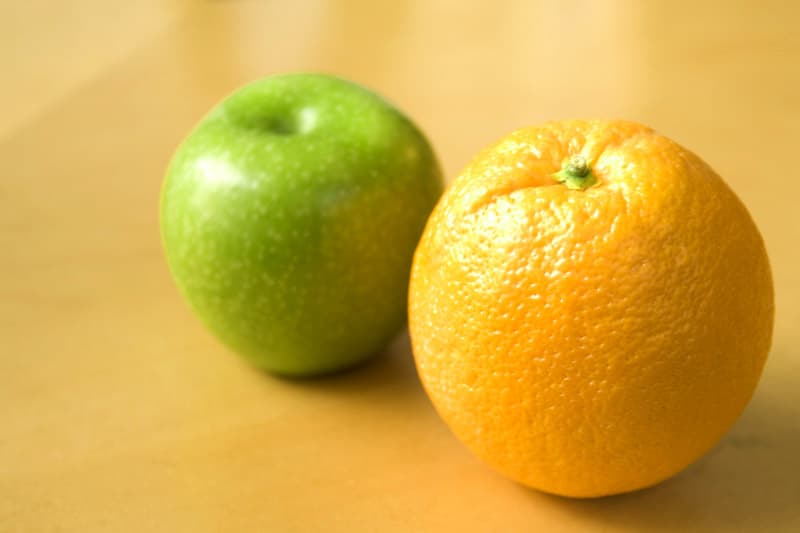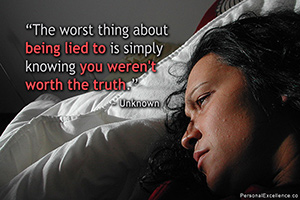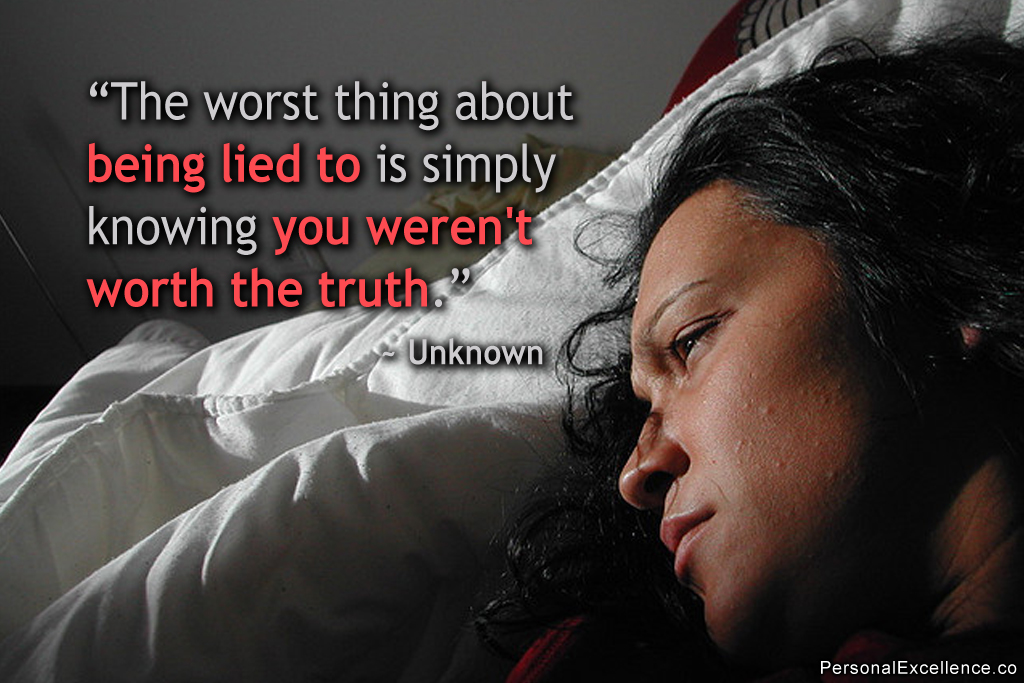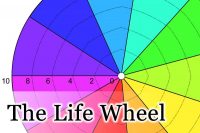
(Image: Javier Veloz)
“People have one thing in common; they are all different.” — Robert Zend
“Until you make peace with who you are, you’ll never be content with what you have.” — Doris Mortman
Earlier this week, I was interviewed by a local blogger. Before the interview, we chatted about our lives, blogging, work, and just life in general.
Family came up as one of the topics, so she asked me about my brother and what he does. I just told her as it is—that I don’t know what he does or what he’s up to since we don’t really speak to one another. I told her this is the way my family is—we don’t talk all that much with each other.
(Update: This article was written in July 2012. My relationship with my brother and father has improved since then.)
Surprised, she told me that she thought a personal development “guru” like me would have great relationships with my family members. Someone like me, doing what I do, should have all my family “issues” sorted out and shouldn’t even have such issues to begin with.
I don’t fault her for thinking that way. I can imagine that someone who looks at my family situation from the outside would probably not understand. I once met someone who gaped in shock for 2-3 minutes when I told her about my family dynamics.
So back to the present. I responded with an understanding nod, explaining what I’ve already written before in my series on how to improve your relationships with your parents: that I used to think of the ideal family unit as one where everyone communicates openly and lovingly, but I eventually realized that every family is different and that the family situation I’m in today is the way it is—because that’s just how each of us is. At the end of the day, we love each other and we simply express our love in a way that’s unique to us.
Comparing as a Source of Unhappiness
This got me thinking about the source of unhappiness in life. For I used to feel incredibly unhappy, resigned, embarrassed, and ashamed of my family situation because it is nothing like the picture of the perfect family painted by society and media.
It was only when I realized that I was really looking for love underneath that ideal vision, and my family members were already expressing their love in their own special ways, that I finally released that “ideal” image, embraced my family members for who they are, and experienced true happiness in the area of family.
Looking back, I can’t believe the number of years I had spent feeling unhappy about something that didn’t even have any validity. All these years of unhappiness, because I had referred to what others had or what society projected as the ideal to strive for. It wasall in my head.
(For more about my family situation and how I found peace in my relationship with my parents, read: How I Found Peace in My Relationship with My Parents (series).)
It made me realize that much of the unhappiness people experience is the result of comparisons with others on what they should do, who they should be, and how they should live.
For example,
- When someone compares his/her family with others’ families, and use them as benchmarks on how his/her family members should behave.
- When someone compares his/her partner with his/her friends’ partners, and feel disdainful that his/her partner doesn’t express love and affection in the way they do.
- Or when one compares his/her income with peers, and feels dejected when it’s not as much as their income.
Benefits of Comparing
I do think that comparison has its place in our lives. For example, when we compare for…
- Diversity. To get a different perspective. E.g., when you compare your culture with others’ cultures to understand differences in norms.
- Benchmarking. To know the standards and what you should aim for. E.g., when you start a new job and you compare your pay with others’ starting pays to know where you stand.
- Ideas. To use what others are doing as stimuli for ideas; for brainstorming purposes. E.g., when you write a new book and you refer to other authors’ books for ideas on what to base your book on.
- Innovation. To know what are the norms so you can deliver better results. E.g., when you want to deliver a breakthrough service and you compare existing services in the market to know where everyone stands.
- Betterment. To better ourselves. E.g., when you compare your work with others’ work to learn from each other’s areas of strength and your areas of improvement.
- Modeling. To get the fastest progress in the shortest amount of time (often used in business and performance-related goals). E.g., when you start a new business and you model your business after the best-in-class company so you can grow it quickly.
Comparing proves to be incredibly useful in each of the examples above. I personally make frequent comparisons with those intentions in mind. In particular, benchmarking and modeling are things that I do often as I grow my business.
When Comparing Loses Its Place
However, there are times when comparing has little role to play.
For example, when you compare for the sake of comparing; when you refer to others’ lives as standards to mold your life to; when you change yourself just to conform to what others are doing; when you expect people around you to behave in ways others do, without regard for their individual personalities.
I think in these cases, comparing is moot because everyone is different and there is no point in trying to make comparisons.
For example: comparing an apple with an orange. I mean, come on! An apple is an apple; an orange is an orange. Both are awesome fruits. Why would you want to compare them? Why would you want to try to pit them against each other and make any semblance of a comparison between them? That’s just missing the point!

The orange is looking at you and saying, “Yo, don’t compare me with da apple, dude.” (Image: TheBusyBrain)
Likewise, you are different from everyone else. Unique in your special way. Trying to draw comparisons between you, your life, your friends, your family, your partner, your kids even, and everyone else’s, is moot. You might get some insights here and there, but ultimately there is little point in trying to draw comparisons between them.
How to Stop Comparing: 3 Important Steps
So some of you might be thinking, Gee Celes, that’s easy for you to say. I’ve been trying to stop comparing for ages. How does one do it then?
I hear you.
Step 1: Know Yourself and What You Stand For
In How To Say No To Others, I shared that learning to say no to others is about drawing your boundaries and honoring your needs. The “ability” to say no is, in a way, a result of respecting your boundaries and needs.
It’s somewhat similar here, in that the “ability” to stop comparing is the result of how you feel about yourself and your life today. If you have an incessant need to compare yourself with others, and you can’t seem to stop yourself from doing so, it suggests you are probably insecure or unsure about yourself (or in the area of your life which you are comparing with others).
Example: Comparing with Others’ Blogs / Sites
For example, for a while in the past, I would compare my blog with others’ blogs, namely in terms of traffic size, audience engagement, and subscriber base. To me, my success was based on my blog size relative to others’ blog sizes. So if my blog was larger than others, it meant I was doing well. If it wasn’t, it meant I wasn’t doing well and I needed to buck up.
Sometimes, these comparisons were deliberate, in that I intentionally compared my site performance with others’. This was usually so when I was working on traffic building plans. Other times, they were instinctive reactions, in that I would instinctively make comparisons when I came across the blogs, websites, and video channels of certain online personalities.
While done with good intentions (in the name of betterment), these comparisons mostly proved to be unconstructive for me. It would make me feel demotivated whenever I saw others with blogs, websites, or channels that were larger than mine, because it made me feel like I was doing something wrong. It would also make me feel panicky, apprehensive, and doubtful about my place in life.
After a while, I realized that I was making such comparisons because I wasn’t confident about my blog’s success, which was in turn due to the erroneous way I had based my blog’s success on. I had based it on its performance relative to other people’s blogs, when I should be basing it on internal metrics.
After all, there will always be a website larger than mine. To quote a popular Chinese saying, “For every high mountain, there will always be a higher mountain elsewhere.” It’s perfectly fine, even good, to refer to others’ blogs as benchmarks for my blog’s growth, but it’s pointless to base my success based on how others do.

(Image: Liudmila Sundikova)
If your comparison behavior is due to insecurity or a lack of confidence in yourself or in that area of comparison, you should build your self-confidence or your confidence that area, versus continually making comparisons with others (since the comparisons will never end). The article How To Be The Most Confident Person In The World will help.
Step 2: Recognize Everyone and Everyone’s Life is Unique
Next, recognize that everyone is unique. That includes you, your neighbor, your brother/sister, your mom, your dad, your friends (every single one of them), your partner, your manager, your colleagues (again, every single one of them), and even that stranger out on the street.
Hence, there is little point in trying to compare yourself with other people, especially in areas that are not comparable to begin with. That includes areas such as your life, your goals, your values, your height, your weight, your race, your body, your looks/beauty, your idiosyncrasies, and so on.
Meaning, if you are 167cm tall, embrace your height, rather than wish you were taller or shorter like X person or X celebrity. If you have dark skin with freckles, embrace it, rather than wish you had lighter skin with no freckles. If you have a pear-shaped body or a square jaw, embrace them, rather than wish you have a different body and a different face shape.
Besides recognizing the uniqueness of each person, recognize that everyone’s life is unique. There is no point in comparing yourself or your life with other people’s lives because each of us has our unique life path that is ours to create and follow. There is no need to feel compelled to live a life that is just like someone else’s, because you are different from that person. Embrace and celebrate the uniqueness and differences between everyone.
Related: Be a Better Me in 30 Days, Day 21: Identify Your Role Model Figure
Step 3: Focus on Being the Best Version of Yourself
“There is nothing noble in being superior to your fellow man; true nobility is being superior to your former self.” ~ Ernest Hemingway
“Always be a first-rate version of yourself, instead of a second-rate version of somebody else.” ~ Judy Garland
Last but not least, focus on being the best version of yourself.
It is good to refer to others as benchmarks of excellence, especially when they are doing well in the goals which you want to pursue. However, know that your end objective here is to create your unique life path and excel in your own shoes—not to be a replica of someone else. Feel free to let yourself be inspired by others, but don’t lose yourself in the fascination.
Ultimately, your biggest and only source of competition in life is yourself.
Firstly, there is a limit to the kind of competition others can provide to you, since they may not be good in all the things you can do. On the other hand, you are a source of unlimited competition for yourself, since you are literally an improved version of yourself with each passing second.
Secondly, as Ernest Hemingway said above, there is nothing great about being superior to others; what’s great is when you surpass yourself and your limits. Rather than strive to supersede others, strive to supersede yourself. Create a tracking sheet with metrics of your goals, and measure your progress over time. Aim to outdo yourself every step of the way. That’s what it means to be excellent.
Final Words
I’d like to leave you with 2 quotes:
“Everybody is a genius. But if you judge a fish by its ability to climb a tree, it will live its whole life believing that it is stupid.” — Albert Einstein
“Wanting to be someone else is a waste of the person you are.” — Kurt Cobain
As the popular saying goes, you were born an original; don’t die a copy. Follow the 3 tips above and you will find that as you grow more and more into your own, you will naturally stop making comparisons between yourself and others.
Do you tend to compare yourself to others? How can you apply the 3 tips above?
Check out: How Social Media Creates a Fear of Missing Out (And What To Do About It)









 Thanks for reading. If you like my free articles, join my private email list and get my latest updates and articles sent right to your inbox.
Thanks for reading. If you like my free articles, join my private email list and get my latest updates and articles sent right to your inbox.